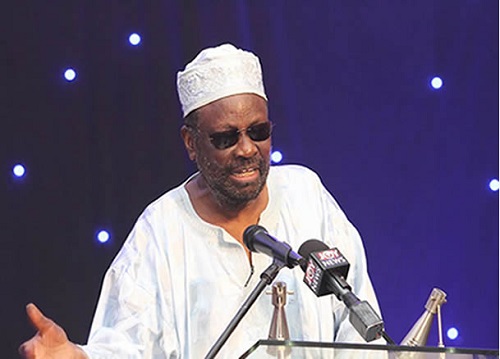I LEFT Kyebi Government School in December 1953 with what was considered a very good “Middle School Leaving Certificate”.
I got an “A” in all the subjects that were considered “important” by would-be employers – English, Arithmetic and so on. But I got a “B” in Agriculture. That prevented me from achieving what we considered to be the best certificate, namely, one with ‘“A’s Throughout”.’
Nevertheless, I wasn’t pleased with my achievement, because it had not been based on the results of a countrywide examination (such as ‘Hall’, which had been inexplicably abolished two years or so earlier) but on an assessment by my class teacher and my headmaster, on the knowledge they thought I had acquired during my schooling period!
As it happened, my elder brother, Kwasi Kwakye, had come home after attending a secondary school in Accra, and had been employed as an ‘uncertficated’ teacher by the very genial headmaster of Asiakwa Presbyterian Senior School, Mr. Kwapong-Mossi. (He had replaced my “enemy”, Akora Foripan!
Rather than sit idly at home, I used to accompany my brother to his classes, and helped mark his pupils’ exercise books, and take the class when he had to go out of the classroom for one reason or the other.
Now, Mr. Kwapong-Mossi, apart from being a very nice man, had an eye for spotting talent, and he somehow gleaned that I was quite good in some of the subjects he taught. So he drafted me to his own class for marking and discipline purposes. Thus, I became, by sheer chance, an unpaid teaching assistant to the teachers of two classes. Eventually, a vacancy occurred for a ‘Pupil Teacher’ to be employed at the Primary School next door, and I was advised by Mr. Kwapong-Mossi to apply to fill it.
I got the job, and was thus well-placed to join an Association B teachers and other adult would-be learners, called the P.E.A. (People’s Educational Association) when one was formed at Asiakwa at the instance of two of the teachers at the Middle School, Mr. Ebenezer Aning Asamoah and Mr. Debrah-Gyadu. A PEA class was provided with a university graduate as a tutor, by the University of Ghana’s “Extra-Mural Studies” Department.
It was by joining the PEA class that I came across the man who was to become the greatest influence in my life, Mr. E.C.E. Asiamah. He was a graduate teacher at Abuakwa State College, Kyebi, and was sent by the P.E.A. to come once a week to teach us a subject we had opted for — English Language.
Mr. Asiamah deftly taught us many interesting aspects of English (including the correct pronunciation of such words as “express”, which we and many other Ghanaians pronounced by putting the stress on the first syllable, instead of on the second!)
In addition to me, Asamoah, Debrah-Gyadu and a third guy called Kwabena Ettoh (a storekeeper), were the most ardent students of Mr. Asiamah’s class. Mr. Asiamah won all of us over wholesale when we observed that the new way he taught us to pronounce certain English words was exactly the same as BBC announcers (to whom we listened). To us, that was proof that he taught with authority, and we tried to master his teaching.
Now, we didn’t know it but Mr. Asiamah was an autodidact who was using his university education—which had earned him a B.A. – to study privately for the LL. B and LL.M degrees. After he had read a few of the essays I’d written for him, he called me aside and asked me what plans I had for further education.
I said I would most probably go to a Teacher’s Training College. As an after-thought, I was bold to tell him that I would like to go and study at his school, Abuakwa State College, if he could arrange for me to get a scholarship (as my father couldn’t afford the fees).
Mr. Asiamah told me he had a better idea: I should enroll as a student at a correspondence course school, based in London, called the “Rapid Results College”. Anyone who paid their fee was sent lessons in the subjects they chose. The lessons were based on the curriculum of an examination called the “General Certificate of Education” (GCE). If one passed in four subjects, one had entered at the Ordinary Level (“O” Level), and got a certificate. One could then do the GCE at the “Advanced Level”, which would earn one admission to the university.
The mention of ‘university’ excited me greatly, and I agreed to enroll at the RRC. I needed to take six subjects to the ‘O’ Level GCE. I chose to read English Language, English Literature, British Medieval History (55B.C. to 1485) and Religious Knowledge with the RRC. I knew I could do Twi as a subject and pass on my own. But there was one more subject to be offered.
Mr. Asiamah suggested I add Latin!
I was going to object but Mr. Asiamah said, “I shall teach you Latin myself. If you come to Kyebi every Friday, after school, I shall take you through the syllabus.”
I enrolled with the RRC immediately. I would receive the lessons by airmail from London, learn them, then answer the questions at the end and post them back to London. My answers would be marked and comments made on them.
The Latin lessons with Mr. Asiamah were very enjoyable. But they took too much time. In fact, on one occasion, Mr. Asiamah himself was so tired that he began to doze off as he was teaching me in his living room at Kyebi. So I decided to ditch Latin.
By CAMERON DUODU


